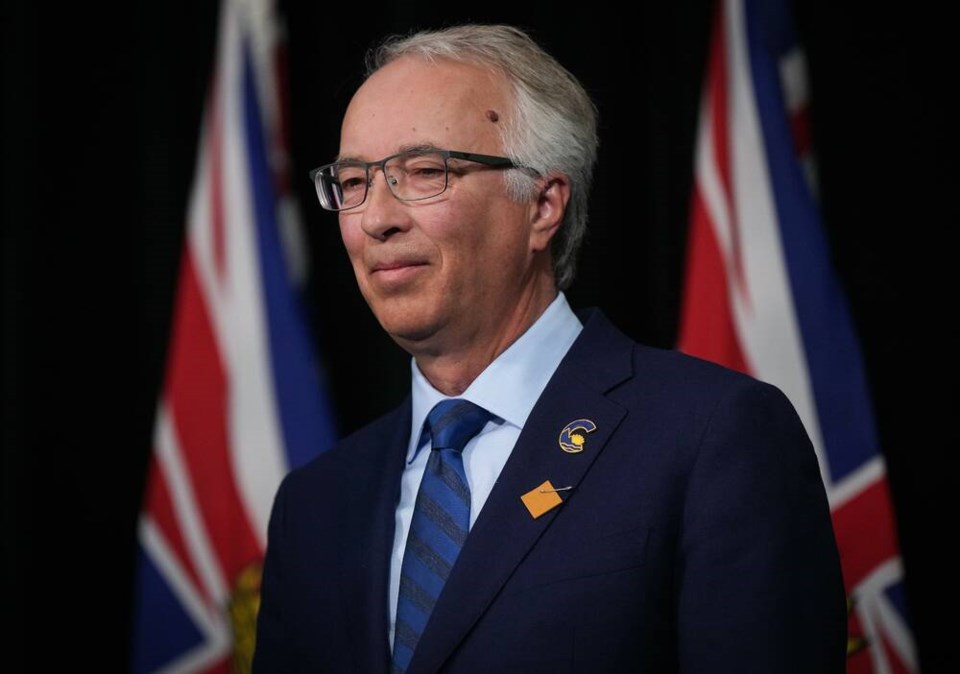A commentary by a former editorial writer for the Times Colonist who has written two books critical of the climate “consensus”: False Alarm: Global Warming Facts vs. Fears (2010) and Through the Looking Glass: A Citizen’s Do-It-Yourself Guide to Climate Science (2023).
B.C. Conservative Party Leader John Rustad is under fire for his views on climate — TC columnist Trevor Hancock has even called him a “climate-change denier” — although Rustad has publicly stated that climate change is “real” and that humans have a role in it.
His sin is suggesting that climate change is not an “existential threat” or a “crisis” that should be top of mind for B.C. citizens, and that a strong economy is more important for most British Columbians.
Rustad’s party claims to be offering “common-sense” policies. But is it common sense to be skeptical about the Net Zero by 2050 policy — reducing our use of fossil fuels to the point at which carbon dioxide emitted is balanced by the amount removed?
People with common sense only agree to spend huge sums of money if they are sure of getting a worthwhile result. Logically, you’d expect Canadian government websites would have the information we need to make a common-sense decision: how much will Net Zero cost us, and what benefit in “global cooling” will our spending achieve?
For some reason, this information is not readily available on the Liberal government sites. Fortunately, some private agencies have made cost-benefit estimates, and they are not reassuring.
The Liberal-friendly McKinsey Global Institute estimates the global cost of Net Zero by 2050 at $10 trillion US a year; energy expert Vaclav Smil’s estimate is $15 trillion US a year.
For Canada alone, the Royal Bank of Canada suggests reaching 75 per cent of Net Zero by 2050 will cost $60 billion Cdn a year, which works out to about $1,500 a year for every Canadian, or $6,000 a year for a family of four — and this is on top of all other taxes.
Obviously, this is the average; better-off families will pay much more than $6,000 a year. The federal government has already racked up a $40-billion deficit for 2024 — where is the extra $60 billion a year for 25 years ($1.5 trillion) to come from?
Faced with these numbers, a person with common sense asks: if we make ourselves poorer by $6,000 or more per household a year, how much “global warming” will our sacrifices prevent?
Political scientist Bjorn Lomborg has estimated, using the Intergovernmental Panel on Climate Change’s own computer models, that if all nations fully met their 2015 Paris Agreement obligations, the temperature rise averted by 2100 would be a mere 0.04° Celsius.
A different estimate by three prominent physicists, Richard Lindzen, William Happer and W. A. van Wijngaarden, predicts that strong global action on Net Zero could reduce warming by 0.07°C by 2050, and as much as 0.28°C if (theoretical) climate feedbacks are included. A temperature change of 0.28°C (much less 0.07°C) is not perceptible by the human body, so this seems like a very low climate bang for our buck.
But let’s say we spend this $60 billion a year up to 2050: how much will Canada’s efforts contribute to “global cooling”?
Canada’s carbon emissions are about 1.5 per cent of total global emissions. Using the generous 0.28°C estimate, by 2050 we will have helped reduce the global temperature by an infinitesimal 0.0042°C (and almost certainly much less). Is a temperature fall of 0.0042°C a “common-sense” investment of $1.5 trillion for the next 25 years?
It gets worse. Many developing nations, like China and India, are continuing to emit carbon in large quantities (China is reportedly building two new coal-fired power plants each week), and they will continue emitting carbon until their populations are lifted out of poverty. So Canada’s emissions’ “savings” on the global scale will be erased within a week or two by the increased emissions of the still-developing nations.
Meanwhile, thanks to the carbon tax, Canada’s competitive position with our chief trading partners continues to fall. The United States doesn’t have a national carbon tax; Mexico’s tax is $3.50 US a tonne. Canada’s carbon tax is $80 a tonne, rising $15 a year to $170 a tonne by 2030 (after that, who knows?). This tax imbalance can only harm Canadian exports and the Canadian economy.
From the “common-sense” perspective of Rustad and many others, spending this $60 billion a year may make us feel like good global citizens.
But the Net Zero policy can only cause enormous, self-created, social and economic damage to Canadians, while achieving virtually nothing in terms of “stopping climate change.”
>>> To comment on this article, write a letter to the editor: [email protected]



